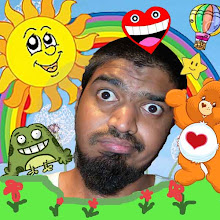A place of luxury, joy and happiness? I think not. After all, playgrounds of the rich and famous usually have names like paradise-, or –hills, even names of birds, flowers and falls. No, no, 19 is the name of a place not entirely devoid of smiles, but nevertheless not worthy of a fancy name (like Paradisebird’flowerhillfalls…). 19 it seems, is an adequate name for a squatter camp (informal settlement) on the fringes of a one street town.
Surprised was I when I first found out that even small towns like Kranskop have room for large scale poverty. Sure, its neighbouring Zulu tribes are probably as close to the original culture as you are likely to find anywhere. “These people should be wearing skins, herding cows and harvesting maize, cane and yam crops out there in the beautiful Tugela river valley…” I thought to myself. It’s a traditional lifestyle that many hippies would be envious of. To be free and independent of the system, no taxes, no crime, no endless bills and no sense of helplessness whenever there is a power failure. Why do these people choose a life of poverty living in a 3m squared shack made of a mixture of other humans discarded bits of metal, tin, cardboard and naturally occurring mud, grass and irregular rocks excavated from the hillsides? Why do they leave the tribes and migrate to the cities? Money, no, the probability of acquiring money, perhaps, the search for a modern “better” lifestyle, overcrowding back home, better education…? I’ve pondered about this for quite some time and still can’t quite figure out what these people look to gain from leaving their tribes and moving to the cities, towns and villages.
I imagine a young man filled with hope, bathed cleaned and donning his best clothes. “I’m leaving now mum, going to the city to make some money. I promise I’ll come back with riches. Goodbye!” Alas he does not realise that the moment he waved and smiled to his mum when he left was the last time he felt levels of hope and confidence that satisfied his soul. He jumps into a taxi which takes him one way, to Kranskop. There he spends 3 or 4 days looking for a job and living off some tiny bit of saved up cash from local trade. By day 5 the money has dried up and the young man, still jobless, too embarrassed to go back home, succumbs to 19.
“19 will take you in for free!”
“19 will hold you in her arms till you get on your feet again.”
“19…”
“…home for those who have none.”
Surely it would be easier to admit defeat and go back home? The idea of returning to the place you were born, the place you had a purpose would stir restlessly around his mind for days, weeks and months… “No, things will get better, I must try harder” ...years. Why then does 19 visibly grow every month? Like some perpetual queuing system for those with broken dreams.
 Children contributing to the household by fetching water from a local shop after the one faucet in 19 broke
Children contributing to the household by fetching water from a local shop after the one faucet in 19 brokeI’m wrong of course, there is more to 19 than I, a neutral bystander with no concept of true poverty, can deduce from mere observations. While I’m here I want to learn about this place and it’s people. I want to alter my perceptions about squatter camp life in an effort to replace speculation with truth. I realise that helping these people would be nearly impossible in my current situation. Recent stats reveal that 1 in 4 South Africans (25% of our population!!!) earn less than R10 a day (about 1 Euro). Besides, what use have they for a scientist with an honours in zoology? I’d be more useful if I learned how to mend broken toilet seats for heavens sake. One thing I can do is spread awareness. I’m thinking about starting a new blog on this topic as I feel that my current one isn’t going to do any justice here.
The only question that remains is whether any human would be interested in reading and following a blog’cumentary of this nature (some feedback if you will faithful followers…)

